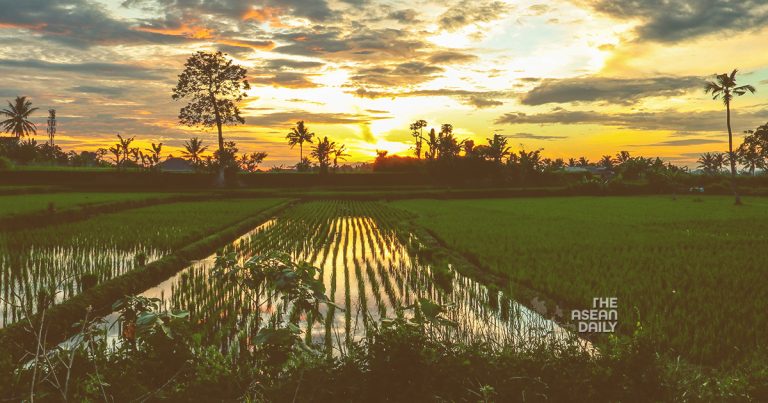14-12-2023 (JAKARTA) In a response to the severe drought gripping Indonesia, the government has called upon the military to assist farmers in planting rice, a move aimed at mitigating the drastic reduction in staple crop output. The drought, exacerbated by the El Nino weather phenomenon, has disrupted planting schedules, driven up prices, necessitated heightened imports, and posed a significant threat to the nation’s food security.
President Joko Widodo, commonly known as Jokowi, issued the directive during his visit to Pekalongan regency in central Java on Wednesday (Dec 13). Acknowledging recent rainfall in some provinces, Jokowi urged military supervisory officers, locally referred to as Babinsa, to capitalize on the improved weather conditions.
“Since rainfall has occurred in some provinces, we want to encourage farmers to start planting rice,” stated President Widodo in a video posted on the presidential YouTube channel. “It has been delayed due to El Nino, but we want to immediately plant, plant, plant,” he emphasized, standing beside newly-planted rice fields.
The El Nino weather phenomenon, which typically leads to hotter and drier conditions in Southeast Asia, has contributed to a global tightening of rice supplies this year. Major rice-producing and consuming countries have witnessed reduced output, leading to a spike in prices. Key export hubs in Asia have experienced price increases of up to 45 per cent, reaching their highest levels in 15 years, especially after India, the world’s leading rice supplier, imposed export restrictions.
The drought has impeded Indonesia’s planting for the 2024 harvest, following a drop in the country’s output this year from 31.53 million tons to 30.9 million metric tons. To address the situation, Babinsa officers, like Sugiono, have undergone a month-long training on rice planting to provide assistance to farmers.
This month, Indonesia’s agriculture minister and the armed forces chief signed a cooperation agreement, outlining the involvement of military personnel in farming activities. The collaboration includes the utilization of idle military land for planting, with the necessary seedlings and machinery provided by the farm ministry.
Julius Widjojono, a military spokesperson, explained, “Some farmers have land but are short of manpower as the farmers are getting older while the younger generations prefer to work in factories, so the armed forces can help with tools and personnel.” While typically only one Babinsa is assigned to a village, Widjojono added that the officer could assess manpower needs for planting and deploy personnel from nearby military units.
Agriculture Minister Amran Sulaiman highlighted the historical success of armed forces involvement in achieving food self-sufficiency, expressing optimism that renewed cooperation could help reduce the need for rice imports. Indonesia has become one of the top rice importers, with state procurement company Bulog tasked with importing 3.5 million tons this year.
This week, Bulog initiated the purchase of rice through an international tender, targeting up to 534,000 tons expected to arrive by the end of January, as reported by European traders.
Farm ministry data reveals a 53.61 per cent decline in Indonesia’s rice-planted area between September and November compared to the previous year. These crops, typically planted in the last quarter of the year, constitute the main harvests for the following year.
Despite the challenges, Indonesia anticipates a rise in rice output to 32 million tons in 2024, with the main harvest in March and April contributing 10.07 million tons—a 14 per cent increase from this year.




